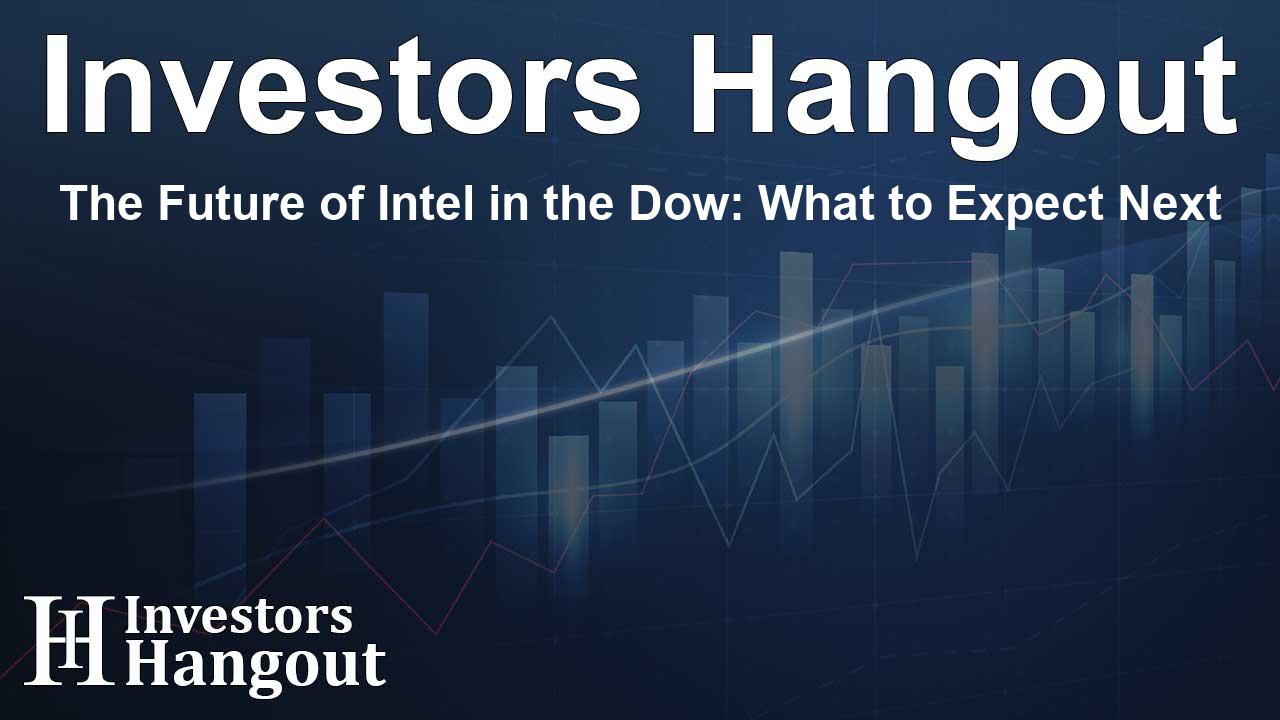The Future of Intel in the Dow: What to Expect Next

Understanding the Dow Jones Industrial Average
For more than 128 years, the Dow Jones Industrial Average (DJI) has served as a vital indicator of the stock market's overall health, reflecting the performance of 30 major multinational companies. When it first launched, the index included just 12 primarily industrial firms. Today, it features a diverse array of businesses from various sectors, illustrating the market's evolution over time.
The Weighting System of the Dow
In contrast to other stock market indices like the S&P 500 and Nasdaq, which are based on market capitalization, the Dow determines its value solely by share prices. This means that companies with higher stock prices have a greater impact on the index. For instance, although Walmart has a market cap of about $620 billion, its share price of $77 places it lower in the rankings compared to Travelers Companies, which is a smaller firm but has a higher share price.
The Decline of Intel in the Dow
Intel, once a giant in the tech industry, joined the Dow on November 1, 1999. However, its performance has been disappointing since then, with shares dropping nearly 49% over the years. Despite efforts to innovate, such as launching new AI-accelerating chips, Intel's market influence has waned as it faces fierce competition from companies like Nvidia.
This decline can be attributed to several challenges. Primarily, Intel has struggled to keep up with market innovations, allowing Nvidia to take the lead in the AI sector with its advanced graphics processing units (GPUs). Additionally, Intel's ambitious plan to create a foundry services division is costly and has yet to yield profits. To make matters worse, competitors like Advanced Micro Devices (AMD) are capturing an increasing share of the CPU market, further eroding Intel's standing.
The Possibility of Nvidia as Intel's Replacement
After Nvidia's recent stock split, many analysts speculate that it could potentially replace Intel in the Dow. Nvidia has achieved remarkable success, with its products dominating the GPU market in data centers. This trend appears to be continuing, especially with the anticipated launch of its next-generation chips.
However, the S&P Dow Jones Indices may be reluctant to replace Intel with Nvidia due to its rapid ascent as a growth stock. The Dow typically features well-established companies, and while Nvidia is thriving, its valuation might be viewed as being driven more by market excitement than by solid fundamentals.
The Case for Broadcom as the Next Dow Component
If Intel were to be removed from the index, Broadcom would be a strong candidate for inclusion. The company has successfully diversified its product offerings and has recently completed a stock split, positioning itself as a formidable contender. Broadcom's innovative solutions extend beyond AI into critical markets such as 5G technology and cybersecurity, thanks to strategic acquisitions.
Including Broadcom would not only add stability to the index but also allow it to benefit from the AI trend without being overly dependent on it. Its comprehensive portfolio makes it an appealing addition should Intel's time in the index come to an end.
Conclusion: Should You Invest in Intel?
Before making any investment decisions regarding Intel, it's important to take into account the broader market landscape and the company's current challenges. Historically, the Dow has highlighted companies with strong, long-term performance.
With emerging competitors like AMD and Nvidia gaining traction, the market landscape may soon favor other tech giants. Therefore, while Intel has historical significance, potential investors should closely evaluate its prospects for recovery in an increasingly competitive environment.
Frequently Asked Questions
What are the main challenges Intel faces today?
Intel is grappling with competition from Nvidia and AMD, high expenses associated with establishing new foundry services, and a slowdown in innovation within the AI sector.
Why is Nvidia being considered as a replacement for Intel?
Nvidia's stronghold in the GPU market and its cutting-edge AI technologies make it a likely candidate for replacing Intel in the Dow.
What role does Broadcom play in the tech industry?
Broadcom provides a wide range of technology products and has expanded into AI and 5G, making it a versatile option for the Dow if Intel exits.
How does the Dow Jones Industrial Average calculate its share prices?
The Dow employs a price-weighted average; thus, higher share prices have a more significant impact on its overall performance than lower ones.
Is Intel still a viable investment option?
While Intel has a rich history, its recent performance and market challenges warrant a cautious approach for potential investors.
About The Author
Contact Henry Turner privately here. Or send an email with ATTN: Henry Turner as the subject to contact@investorshangout.com.
About Investors Hangout
Investors Hangout is a leading online stock forum for financial discussion and learning, offering a wide range of free tools and resources. It draws in traders of all levels, who exchange market knowledge, investigate trading tactics, and keep an eye on industry developments in real time. Featuring financial articles, stock message boards, quotes, charts, company profiles, and live news updates. Through cooperative learning and a wealth of informational resources, it helps users from novices creating their first portfolios to experts honing their techniques. Join Investors Hangout today: https://investorshangout.com/
The content of this article is based on factual, publicly available information and does not represent legal, financial, or investment advice. Investors Hangout does not offer financial advice, and the author is not a licensed financial advisor. Consult a qualified advisor before making any financial or investment decisions based on this article. This article should not be considered advice to purchase, sell, or hold any securities or other investments. If any of the material provided here is inaccurate, please contact us for corrections.
